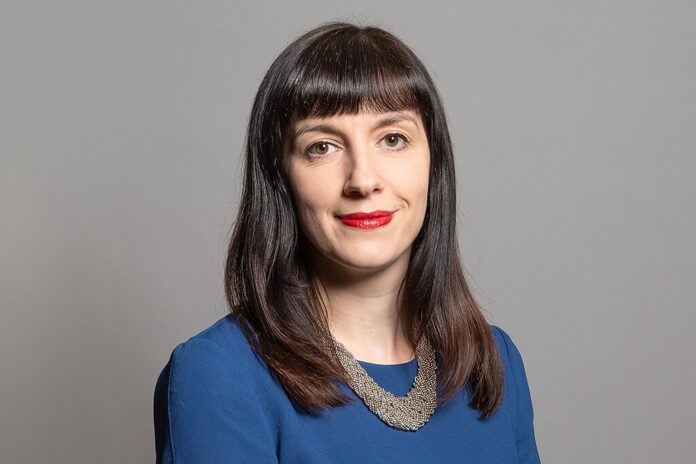Bridget Phillipson admits labour’s welfare climbdown makes ending two-child benefit cap harder
Labour minister Bridget Phillipson has admitted that the government’s recent U-turn on welfare reforms could derail plans to scrap the controversial two-child benefit cap, widely condemned as a driver of child poverty.
Speaking on BBC One’s Sunday with Laura Kuenssberg, the education secretary acknowledged that the decision to backtrack on £5 billion worth of annual savings had come at a cost. That retreat, sparked by a Labour backbench rebellion, has thrown a shadow over the government’s ability to fund new policies—particularly those targeting child poverty.
“The decisions that have been taken in the last week do make future decisions harder,” Phillipson said. “But all of that said, we will look at this collectively in terms of all the ways that we can lift children out of poverty.”
It was the clearest signal yet that Labour may delay, or even abandon, efforts to scrap the two-child limit—an austerity-era policy introduced by the Conservatives that prevents families from claiming full means-tested benefits for more than two children.
Experts and campaigners have repeatedly said removing the cap would be the single most effective way to reduce child poverty in the UK. They estimate around 100 children are pushed into poverty every day due to the restriction.
Asked again on Sky’s Sunday Morning with Trevor Phillips, Phillipson reiterated the cost implications of the U-turn. “The changes in the last week, of course, have come at a cost, and we have been upfront about that,” she said.
Phillipson, who is co-chairing a new child poverty taskforce alongside work and pensions secretary Liz Kendall, insisted Labour still had a mission to tackle inequality. “The mission that we’re driving across government is about making sure that background doesn’t determine success,” she said. “For far too many children in our country, the family that they’re born into, the town that they’re born into, will absolutely determine their life chances.”
Labour has already rolled out some targeted initiatives. Eligibility for free school meals has been expanded, and a new network of family hubs will offer parenting support across England. These hubs are intended to replicate elements of the Sure Start centres launched under the last Labour government, which were gutted during Conservative-led austerity.
Embed from Getty ImagesDespite mounting pressure from charities, anti-poverty campaigners, and her own MPs to scrap the two-child cap, Phillipson struck a cautious tone. “They will appreciate, as we all do, that any change we set out in this area or in any other area, we’ve got to be clear about what the cost is and how we make sure that the numbers add up.”
Her comments follow a week of political turbulence. Chancellor Rachel Reeves, already under scrutiny over public finance black holes, faced further pressure after Labour dropped its proposed disability benefits cuts amid widespread backlash. That reversal blew a £5bn hole in Reeves’ fiscal plans, potentially jeopardising future reforms.
Nonetheless, Phillipson stressed Labour remained committed to a “fairer and more equal society” and to ensuring children were not “scarred by child poverty.” She insisted that, despite the financial setbacks, the new government was serious about change.
“My message to my colleagues, to parents, to campaigners and to everybody watching this morning,” she said, “is that this Labour government is serious about tackling child poverty.”
But as budget pressures mount and backbench unrest continues to simmer, the government’s ability to deliver on its flagship promises without breaking its fiscal rules appears increasingly strained.
BBC
The government’s costly U-turn on disability benefit reforms has made future spending decisions, including lifting the two-child benefit cap, significantly more difficult, Education Secretary Bridget Phillipson admitted. Speaking on BBC’s Sunday with Laura Kuenssberg, Phillipson said ministers were “looking at every lever” to fight child poverty but would not commit to scrapping the cap, which affects 1.6 million children.
The previous welfare plan was expected to save £5bn a year by 2030, but Labour’s retreat under pressure from its own MPs has erased or delayed those savings, putting further strain on Chancellor Rachel Reeves ahead of the autumn Budget. Abolishing the cap would cost £3.4bn annually, according to the IFS, and lift 500,000 children out of relative poverty.
Despite leading a child poverty taskforce with Liz Kendall, Phillipson said “decisions have got harder,” hinting that removing the cap may no longer be viable. Reeves also refused to back the policy, citing fiscal “responsibility.”
SKY NEWS
Labour’s recent welfare U-turn, forced by backbench rebellion, has opened the floodgates to further internal demands—especially around the contentious two-child benefit cap. Rob Powell, writing for Sky News, compares the standoff to a familiar parental dilemma: once one rule is bent, the expectation rises that others will be too. Labour’s message—you’ve had your welfare reversal, so forget scrapping the cap—has done little to calm MPs, many of whom see lives, not budgets, being bartered.
Education Secretary Bridget Phillipson has warned that the U-turn came “at a cost,” making future spending harder. But Labour MPs remain vocal, with mounting pressure to lift the cap that affects 1.6 million children. While ministers insist fiscal discipline remains, critics say it risks reducing human needs to political horse-trading. With discontent rumbling, Powell predicts that another “tantrum” from Labour’s backbenches is inevitable unless Downing Street finds a better way to square its politics with compassion.
